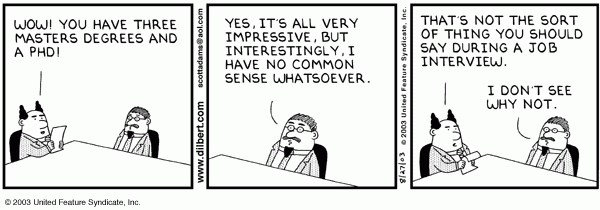It had begun to emerge as a pattern.
The résumé discovery on a job portal and the phone call from the HR person, with the 3 standard questions about my “current CTC, Expected CTC and joining time”. Hours or a few days later, the said person would announce that I’m scheduled for a phone interview. Back then, I wouldn’t be surprised. “Of course I was always going to get the phone interview. I mean with that resume…”, to more logically flawed proclamations like “They called me. I didn’t call them so obviously they love me!”
And then the interview would transpire. A faceless soul on the other end of the line, throwing question after question to gauge my suitability for that coveted job – at least according to them. I would answer all the questions to the best of my knowledge, improvise on some, fumble with some, but confident the entire time that I did a great, or at least a good job. I’d go over the interview in my head, gleaming, and harbour the dreams of getting the call for another round, and then, the offer letter! In the process I would already mentally check out of my current job and imagine myself at the company I’d just interviewed with. The reverie would include going through the photos of its office, researching into the work culture, imagining my new title on my Linkedin profile…
Alas. None of that happened.
Over the last one year, I’ve done interviews after interviews with biggies like Facebook, Flipkart, Amazon, or even tiny year-old startups, all initiated by them and mostly all over the phone, but the response after the first interview had been the same.
“Sorry, at this point you’re not suitable for this opening” would pop up this or similarly worded email a few days later from slightly gracious companies, or crickets from some. Ouch.
Admittedly, it wasn’t a happy state of affairs. My confidence was at an all time low. In fact I wanted to give up applying to other jobs altogether. “Maybe this year isn’t for me. Maybe I’m not even meant for the corporate” my mind would reason. Or the ever more self assuring, defence mechanism of attributing it all to karma. “THEY didn’t deserve me!” Sometimes I’d play my own agony aunt and tell myself how great my current job actually is and I shouldn’t be even looking for a change, to begin with. Or clutching at the straws, I would attribute the rejections to a superstition. “Of course, I shouldn’t have told X about the interview! He clearly jinxed it. That and the 10 others”
But at long last, my practical side emerged and I had to face the fact that I was screwing up something. Somewhere. Despite an above-average educational background, a sizeable amount of experience in the field and a Fortune100 brand on my résumé, and VERY functional skills that the job description demanded, what was amiss? Surely, all these companies were reaching out to me based on my résumé so that part was sorted. What happened after? How have I managed to get 2/2 jobs in the best companies and now it seems impossible to go beyond the first interview?
Where did I lose them between the call from the HR and that phone interview?
The answer was staring me in the face. (ironically)
The phone interview.
Not that I could ever be 100% sure that I was screwing up my phone interview, but there were high chances. 10 companies cannot be just deriving some sort of schedunfrede in rejecting me. There were lessons to be derived, an action plan to be drawn and acted upon. So I got down to the brass tacks, and to the drawing board and thought of every single thing, consulted friends, shadowed a friend’s phone interview- all to identify all that I could be doing wrong post the interview call and during the interview call that tipped the scales against me.
So here are some of the practical things I’ve figured one must take care of to rock that phone interview and if not secure, at least beef up all your chances to convert the phone interview into an offer.
1. Ensure you have full network when you schedule that call: Captain Obvious you say? You’d be surprised. My trusty Idea network betrayed me, with its usual full 5 signal bars yesterday- totally blank today! One company that couldn’t call me at the time of the interview, had to reschedule it. Imagine how unprofessional that would’ve looked. Surely, you don’t want to hire someone for a high responsibility role when they can’t even ensure an incoming call at a pre-decided time? Besides what if they change their mind just in that little window after the first failure to communicate and the 2nd interview?
2. Do your research: This goes for all interviews, phone or face-to face. Period. Know the company well. But more than an academic reading of its history, name of the founders and its last 10 CEOs, what’s more important is that you know the functional details of its standing today. What is the company doing today? What is its share in the market? What are its growth plans? And where do you fit in the overall structure?
For eg. in one of my interviews the interviewer asked me if I know what the share of their company in the Indian ecommerce pie is.
I was clueless.
3. Know what you will do for them: While it’s easy to get away with this question and treat the interview like an opportunity to plug your resume and accomplishments on it, what they’re more interested in knowing how YOU could help their business. For eg. in an interview for an ecommerce giant- I was asked what I’d done in my previous role and while I launched into a 15 minute spiel into all the cool things I did at company x; in hindsight I figured I should’ve needed to put it in ways that they see value in my experience for their job. I could’ve said “I did data analysis using SQL, to gain insights into customer buying patterns which is pretty useful for ecommerce companies”
4. Be prepared mentally and physically: You’ve done your research on the company, but are you mentally and physically prepared?
Don’t agree for an interview when the time conflicts with a meeting just before or another one right after. A stressed, overworked or troubled mind wouldn’t help with an interview at all and make you lose focus and blurt things you may not have intended for. I once did an interview where I was angry with someone else for personal reasons, but ended up talking like a sulking child to the unsuspecting man on the other end. Sounding friendly and enthusiastic about the interview and the job makes the interviewer warm up to you.
Of course, having a clear voice would also help. Don’t do an interview during a bout of cough or sore throat. As an ex-Toastmaster, I can confirm that nobody wants to listen to a coughing fit or the ahs and ahems every 5 seconds. Similarly, don’t be caught with a bad ear! People on the other end will get annoyed if you keep going “What?”, “Sorry” after every line. Get your ears cleaned or checked before a major interview. If you’re hard of hearing- and it’s common these days- Get an aid.
5. Have some stats ready: Everyone loves talking about their accomplishments and awards, but words are subjective and relative to your role and the objectives of the company. “I did really well as an account manager” doesn’t have the same impact as “In 4 months of my stint as an Account Manager, with proactive monitoring of Google analytics and scouring of keyword opportunities, I helped client x achieve 3x ROI on their ad money”
6. Keep a pen and paper handy: It’s possible that your interviewer may give you a brief case study or a small calculation to work out while on the call. However good at math you may be, it’s possible in a time of stress, your mind could blank out and you’d miss out on a potential scorer. Have a notepad at the ready and any stats based question, jot them down and work them out simultaneously.
7. Get a room!
I have a confession to make at this point. I have interviewed with other companies twice, while sitting in the cabin of my current boss- in the current company. I did feel a bit guilty- even if it’s just a psychological barrier- but it felt odd. But there was no option. There were no free rooms and I hadn’t been prudent enough to book one beforehand. Imagine the horror if my present boss just casually walked in?
Interviewing in a noisy environment or a room where you’re likely to be disturbed a lot could make your interviewers lose interest faster than you could say excuse me. Respect the sanctity of the interview and get an interview-friendly room.
8. Don’t be a self-entitled pr**k: So you’ve might have worked for the best company in the world, you may have X number of twitter followers and your current job may be the bees knees, but a sense of self entitlement and casual indifference while doing the interview, like I realised I emanated, can put your interviewer off. I have done an interview with a startup where to most of their questions, my answers ranged from “Hmm, I don’t know” to “Maybe it’s not relevant to this interview.” I was simply bored, and uninterested in the job. Why did I then even agree to do the phone interview and add one to the list? The fact remains that no matter what your background and credentials, you’re here, talking to a prospective employer whom you’ve shown an express interest in, and who will pay you and hire you based on what you can do FOR them, and not what you have done in the past. Showing an interest in the company and the job, and treating the interviewers with respect and having a humble, understated stance would go a long way.
The above tips won’t guarantee a job, and course ultimately it all boils down to your skills and experience for the job, but would help to keep yourself assured that you did the best you could from your end.
Meanwhile, what about me? Did I act on any of these tips myself and managed to convert another job?
I didn’t apply to one ever after. I am now working for this website 🙂
Recommended Read:
These 5 People Made Insanely Creative Résumés To Get Noticed


